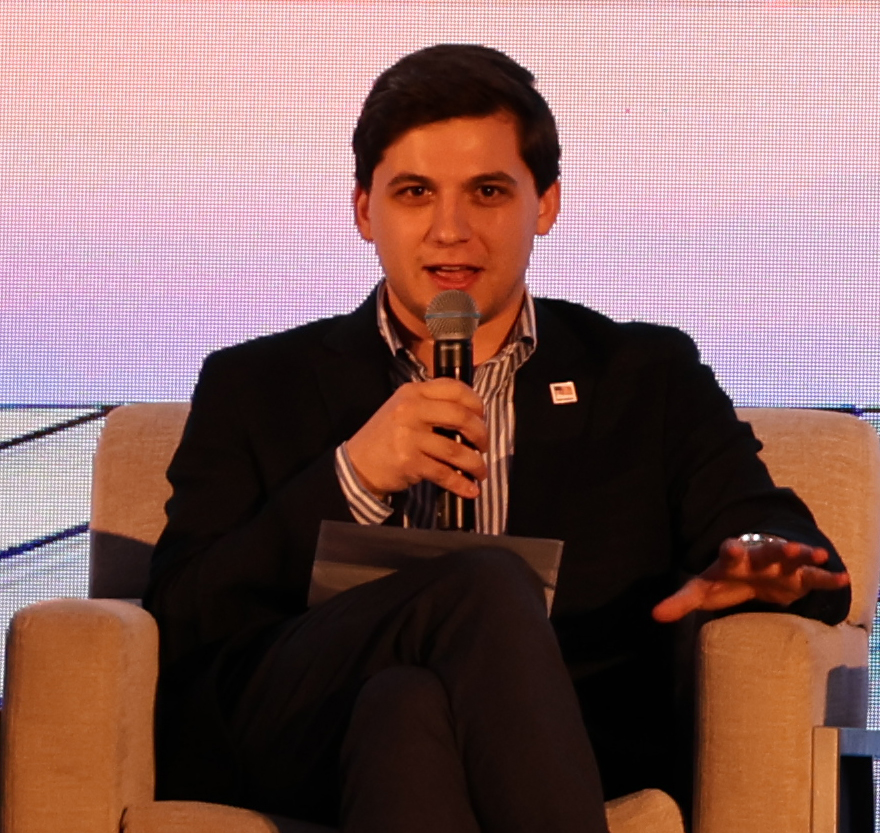By Carlos Roa, VoLo Foundation
George Behrakis is a leading voice in young conservative climate advocacy, dedicated to advancing market-based solutions to environmental challenges. He serves as president of Young Conservatives for Carbon Dividends, mobilizing young, right-of-center Americans in support of carbon pricing.
Recognized as a Future Climate Leader by the Aspen Institute in 2022, Behrakis became the youngest board member of Tufts University’s Tisch College of Civic Life in 2024. His dedication to climate action extends globally as co-founder of the AXIOS Project, an initiative rallying Greek-American leadership to address climate challenges in Greece.
At the Climate Correction 2025 conference recently hosted by VoLo Foundation, George shared his insights on climate action, the role of young people in shaping the future, and the importance of bipartisan collaboration.
In this interview, he discusses his key takeaways from this recent event, and how different perspectives can drive meaningful solutions.

What were your main takeaways from the Climate Correction conference?
It was amazing to be part of Climate Correction for the third time. Each year, it gets better. One moment that stood out was when David and Thais, the co-founders and trustees of VoLo Foundation, spoke about combining data and science with heart and soul. Many climate events focus heavily on facts and figures, while others lean toward emotion and activism. What makes Climate Correction special is the blending of both — substantive, data-driven discussions alongside meaningful human connections through art and collaboration. Such a balance is what makes this conference unique.
Did attending the event inspire any new ideas or strategies for your work?
Absolutely. One of the sessions I led was a lunch discussion on carbon pricing, a complex but crucial topic. The connections we made there will lead to further discussions and new collaborations. The conference brings together people from across the country, not just Florida, while remaining intimate enough to facilitate real engagement. It’s a space where you can meet the people you want to meet, learn about their work, and explore ways to collaborate.
As a young person, how do you approach climate issues differently from other generations?
Young people have a unique advantage — we look beyond short-term political cycles and focus on the long-term future. We know we’ll be living with the consequences of climate change for decades, so we’re deeply invested in finding sustainable solutions now. One of the most interesting aspects is that climate awareness among young people is largely bipartisan. Unlike older generations, where opinions on climate often fall along party lines, younger conservatives and liberals alike recognize the urgency of the issue. This common ground is a powerful foundation for action.
How do you navigate climate issues from a conservative point of view?
Among conservatives, there is broad agreement on the science of climate change and the need for action. The debate is more about the solutions. My belief — and one resonating with many conservatives — is that market-driven solutions are key. Capitalism and innovation can accelerate the clean energy transition at the scale and speed required. Some of the most engaged conservative voices in the climate space advocate for policies aligning market incentives with sustainability. It’s about leveraging economic forces to drive progress rather than relying solely on government mandates.
What do you see as the most pressing climate issues now?
It depends on where you live. In Florida, for example, which is politically conservative, climate issues are deeply relevant because of rising sea levels and the direct impact on coastal communities. In the western U.S., wildfires and air quality are top concerns. For others, the focus might be on clean energy jobs and economic opportunities tied to sustainability. Climate perspectives are often shaped more by geography than by politics, which makes localized solutions essential.
You’ve spoken about the need to build bridges in climate conversations. What’s your strategy for achieving that?
Building bridges isn’t just about agreeing for the sake of agreement — it’s about ensuring climate policies endure. The U.S. operates on a two-party system, and political power shifts frequently. For climate action to be effective and lasting, it must have bipartisan support. Otherwise, policies risk being reversed with each election cycle. This is why we need to engage conservatives and progressives alike, to find common ground and create durable solutions. Climate change is too important to be a partisan issue — we need a broad coalition to drive lasting impact.
Carlos Roa is senior press and PR director for VoLo Foundation. VoLo Foundation is a financial supporter of The Invading Sea. This piece was originally published at https://volofoundation.org/news/george-behrakis-the-market-as-an-ally-in-climate-action/. Banner photo: Behrakis and Andrea Yodsampa, CEO and founder of DEPLOY/US, appear on a panel at the Climate Correction Conference on March 13 in Orlando. (Kimberly Vardeman photo).
Sign up for The Invading Sea newsletter by visiting here. To support The Invading Sea, click here to make a donation. If you are interested in submitting an opinion piece to The Invading Sea, email Editor Nathan Crabbe at ncrabbe@fau.edu.



